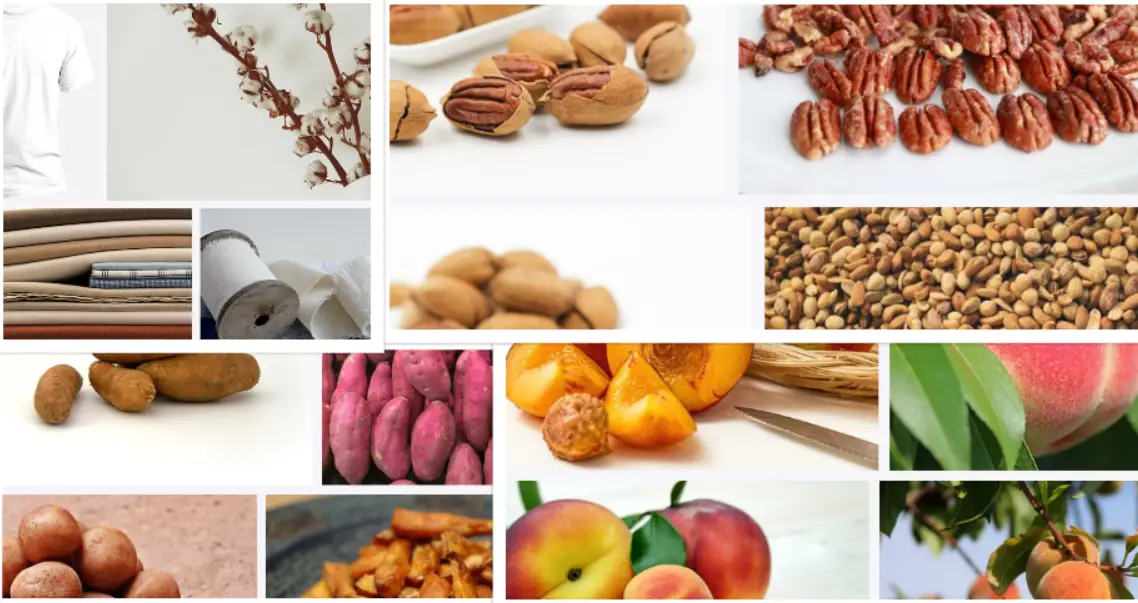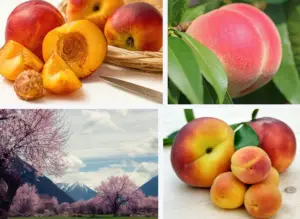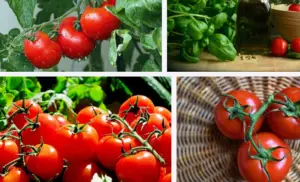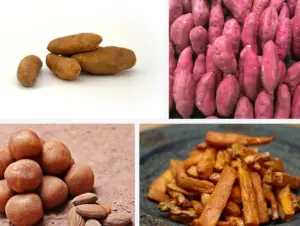What is Alabama Known for Producing? | Fruits and vegetables that Grow in Alabama

- By
- Aparna Patel
- |
- 4 Apr, 2023
- |

Alabama, located in the southeastern region of the United States, is known for many things. From its historical landmarks to its beautiful beaches, this state has a lot to offer. However, one of the things that often gets overlooked is Alabama’s agricultural industry. Alabama’s fertile soil and favorable climate make it a prime location for producing a wide variety of crops.
In this blog, we will explore some of the fruits and vegetables that grow in Alabama and learn why they are such an important part of the state’s economy and culture. Whether you’re a resident or just a curious traveler, this article will give you a deeper appreciation for what Alabama has to offer.
Alabama is known for producing a variety of crops and products, thanks to its diverse climate and fertile soil. Here are some of the fruits and vegetables that grow in Alabama and are produced in large quantities:
- Peanuts: Alabama is one of the largest peanut-producing states in the country, with farmers growing over 200,000 acres of peanuts each year.
 Alabama is one of the top peanut-producing states in the United States, with peanut farms spread throughout the southeastern region. The state’s warm and humid climate, combined with its fertile soil, creates ideal conditions for peanut cultivation.Peanuts are typically planted in Alabama between April and May and harvested in September and October. The peanut plant produces a small yellow flower that eventually sends a stem down into the ground, where it forms the peanut pod. After the peanut pods have matured, they are harvested and then dried to reduce the moisture content.
Alabama is one of the top peanut-producing states in the United States, with peanut farms spread throughout the southeastern region. The state’s warm and humid climate, combined with its fertile soil, creates ideal conditions for peanut cultivation.Peanuts are typically planted in Alabama between April and May and harvested in September and October. The peanut plant produces a small yellow flower that eventually sends a stem down into the ground, where it forms the peanut pod. After the peanut pods have matured, they are harvested and then dried to reduce the moisture content.
Alabama peanuts are used for a variety of purposes, including snack foods, peanut butter, and cooking oils. The state also hosts several annual peanut festivals, including the National Peanut Festival in Dothan, which celebrates the crop and its importance to the local economy.
Overall, peanuts are an important agricultural crop in Alabama, both for their economic impact and cultural significance. The state’s long history of peanut farming has made it an important contributor to the peanut industry, both nationally and internationally.
- Cotton: Cotton is another major crop in Alabama, with the state ranking among the top ten cotton-producing states in the U.S.
 Cotton has been an important agricultural crop in Alabama for centuries. The state is one of the largest cotton producers in the United States, with cotton farms located throughout the state’s fertile Black Belt region.Cotton is typically planted in Alabama between April and May and harvested between September and November. The cotton plant produces white or yellow flowers that eventually turn into bolls, which contain the cotton fibers. After the bolls have matured, they are harvested and then ginned to separate the cotton fibers from the seeds.
Cotton has been an important agricultural crop in Alabama for centuries. The state is one of the largest cotton producers in the United States, with cotton farms located throughout the state’s fertile Black Belt region.Cotton is typically planted in Alabama between April and May and harvested between September and November. The cotton plant produces white or yellow flowers that eventually turn into bolls, which contain the cotton fibers. After the bolls have matured, they are harvested and then ginned to separate the cotton fibers from the seeds.
Alabama cotton is used for a variety of purposes, including clothing, bedding, and other textiles. The state’s cotton industry has also played an important role in its history, with cotton plantations and slavery being a significant part of the state’s past.
Today, the cotton industry remains an important part of Alabama’s economy, with thousands of people employed in various aspects of the industry, from farming and processing to manufacturing and distribution. Cotton is also celebrated in several annual festivals throughout the state, including the Cotton Pickin’ Fair in Gay and the Alabama Cotton Festival in Eclectic.
Overall, cotton production is an integral part of Alabama’s agricultural heritage and its present-day economy, and the state’s cotton farmers are committed to continuing this legacy for generations to come.
- Pecans: Alabama is known for its delicious pecans, which are harvested in the fall and can be found in pies, candies, and other treats.Pecans are a delicious and nutritious tree nut that is grown in Alabama. The state’s warm climate and rich soil make it an ideal location for pecan cultivation, and Alabama is one of the top pecan-producing states in the United States.Pecan trees in Alabama typically bloom in early spring, around March or April. The trees produce long, green pods that contain the pecans. The pods begin to split in late September or early October, and the pecans are ready to be harvested.
Harvesting pecans is a labor-intensive process, as the nuts must be hand-picked from the trees. Once the pecans have been harvested, they are then cleaned, sorted, and shelled.
Alabama pecans are used in a variety of ways, including baking, snacking, and as an ingredient in many different dishes. The state is also home to several pecan festivals, including the National Pecan Festival in Mobile, which celebrates the pecan and its importance to Alabama’s economy and culture.
Overall, pecan production is an important part of Alabama’s agricultural industry, and the state’s pecan farmers are committed to producing high-quality nuts for consumers around the world.
- Peaches: Peaches are a popular fruit in Alabama, especially in the southern part of the state. The Chilton County Peach Festival is a popular annual event that celebrates the harvest of this delicious fruit.Alabama is known for producing delicious, juicy peaches that are enjoyed throughout the country. The state’s warm climate and well-drained soils make it an ideal location for growing peaches.
 Peaches in Alabama are typically planted in late fall or early winter, and the trees begin to bloom in early spring. The peaches themselves are usually ready to be harvested in late May or early June and continue through mid-August.
Peaches in Alabama are typically planted in late fall or early winter, and the trees begin to bloom in early spring. The peaches themselves are usually ready to be harvested in late May or early June and continue through mid-August.
Peaches are hand-picked from the trees when they are ripe, which ensures that they are of the highest quality. Once the peaches have been harvested, they are then sorted and packaged for distribution to markets and grocery stores around the country.
Alabama peaches are prized for their sweetness and flavor and are used in a variety of ways, from baking and cooking to eating fresh as a snack. The state is also home to several peach festivals, including the Chilton County Peach Festival, which celebrates the peach and its importance to the local economy and culture.
Overall, peach production is an important part of Alabama’s agricultural industry, and the state’s peach farmers are committed to producing the highest-quality peaches for consumers to enjoy.
- Tomatoes: Tomatoes are grown in Alabama and are used in a variety of dishes, from salads to sandwiches.Tomatoes are a popular fruit that is grown in Alabama, and the state has a long history of tomato production. The warm climate and fertile soils in Alabama make it an ideal location for growing tomatoes.Tomatoes are typically planted in Alabama in early spring, around March or April. The plants begin to produce fruit in late June or early July and continue to produce through September.

Tomatoes are usually harvested when they are fully ripe and have reached their maximum flavor and nutritional content. They are hand-picked from the vines and then sorted and packaged for distribution to markets and grocery stores.
Alabama tomatoes are used in a variety of ways, from fresh salads and sandwiches to canned goods and sauces. The state is also home to several tomato festivals, including the Alabama Tomato Festival in Clanton, which celebrates the tomato and its importance to the local economy and culture.
Overall, tomato production is an important part of Alabama’s agricultural industry, and the state’s tomato farmers are committed to producing high-quality tomatoes for consumers to enjoy.
- Sweet potatoes: Sweet potatoes are a staple in Southern cuisine, and Alabama is no exception. They are used in a variety of dishes, including casseroles, pies, and as a side dish.Sweet potatoes are a nutritious and delicious root vegetable that is grown in Alabama. The state’s warm climate and fertile soils make it an ideal location for sweet potato cultivation.
 Sweet potatoes in Alabama are typically planted in late spring or early summer, around May or June. The plants begin to produce tubers in late summer, around August or September, and continue to produce through October.
Sweet potatoes in Alabama are typically planted in late spring or early summer, around May or June. The plants begin to produce tubers in late summer, around August or September, and continue to produce through October.
Sweet potatoes are usually harvested by hand, as the tubers are fragile and can be easily damaged by machinery. Once the sweet potatoes have been harvested, they are then sorted and packaged for distribution to markets and grocery stores.
Alabama sweet potatoes are used in a variety of ways, from sweet potato pie and casseroles to baked sweet potato fries and chips. The state is also home to several sweet potato festivals, including the National Sweet Potato Festival in Cullman, which celebrates the sweet potato and its importance to the local economy and culture.
Overall, sweet potato production is an important part of Alabama’s agricultural industry, and the state’s sweet potato farmers are committed to producing high-quality tubers for consumers to enjoy.
Read More
Overall, Alabama is known for producing a variety of crops and products, from peanuts and cotton to peaches and pecans. The state’s fertile soil and warm climate make it a prime location for agriculture, and its farmers and producers are proud to showcase their products to the rest of the country.
More Post
Search Posts
Latest posts
-
4 Mar, 2024
How to make dining alone less awkward?
-
4 Mar, 2024
Why are there no seat belts on trains?